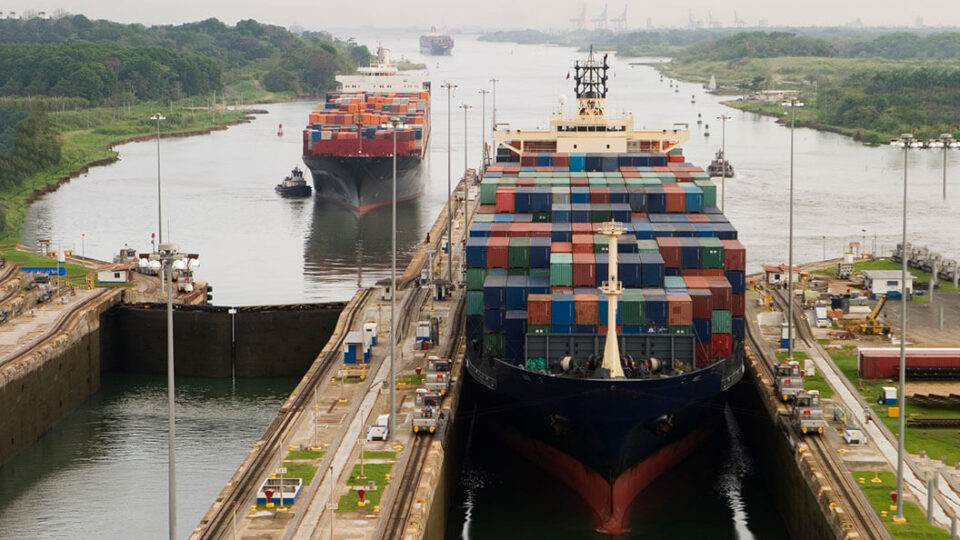
Panama Canal Congestion Expected To Devastate Supply Chain
The Panama Canal is an important waterway used for the international transportation of goods. It offers a shortcut that container ships and other vessels use for travel between the Atlantic and Pacific Oceans. Unfortunately, this vital waterway has become congested, causing the global supply chain to suffer as a result.
Why the Canal Has Become Congested
Freshwater reservoirs supply the Panama Canal. Currently, an extended drought has brought levels dangerously low, which means there’s less water available to correctly work the canal’s lock system. To deal with this problem, the Panama Canal Authority (PCA) started introducing water conservation measures back in May.
This includes:
- Reducing the number of daily transits by 20%
- Lowered booking slots for Panamax vessels
- Requiring ships to be 40 % lighter before crossing
- Implementing draft limits
The PCA has reduced daily transits through the waterway by 20 percent. With lower daily capacity, ships without pre-booked reservations will be forced to wait in line for entry. The PCA has also lowered the available booking slots for Panamax vessels from August 8 to August 21st. These are the largest ships permitted to cross through the canal.
By requiring vessels to be 40 % lighter, ships that were already waiting to cross will either need to unload some cargo or find a route that bypasses the waterway.
Draft limits have been implemented because the critical waterways are no longer as deep and ships with large drafts may risk running aground. The draft of a ship is the vertical distance between the waterline and the bottom of a vessel. To address this issue, the PCA is enforcing a maximum draft of 44 feet or 13.41 meters.
The PCA’s water conservation measures are creating an excessive amount of congestion. According to CNBC, there are 154 commercial vessels waiting to cross the Panama Canal. Ships are currently waiting an average of 21 days before traveling through the waterway.
Another disturbing statistic is that only 38 percent of ships waiting to cross the Panama Canal have reservations. This means the remaining 62 percent of vessels are waiting in line for their turn.
How Shippers and Carriers Are Reacting To the Congestion
While the congestion on the Panama Canal is inconvenient, there are solutions that carriers and shippers are exploring. For example, transportation providers are redirecting vessels to alternate routes that bypass the waterway. Other carriers have unloaded some of their cargo to abide by the PCA’s 40 percent lighter policy.
Shippers are working around the issue by sending their freight on smaller vessels. This will help them avoid any PCA restrictions placed on Panamax carriers. Another solution for shippers is to send their freight using international air transport. While this option isn’t the best for bulk shipments, it’s a faster way to send goods and it bypasses the waterway altogether.
The Good News
The congestion at the Panama Canal will have an impact on the supply chain. That said, it’s unlikely the slowdown will be as devastating as those resulting from the slowdowns connected to the COVID-19 pandemic. According to the CEO of the container shipping company Hapag-Lloyd, the delays caused by congestion at the Panama Canal won’t cause a huge impact on global shipping.
Freight will still be able to move through the waterway, albeit, at a slower pace. Other important access points across the globe aren’t struggling with the same level of congestion. Therefore, freight shipments that aren’t sent through the Panama Canal won’t suffer from the same type of delays.
How R+L Global Logistics Can Help You Overcome Panama Canal Congestion
R+L Global Logistics has the ability to help you circumvent Panama Canal congestion. Our international team are experts at exporting and importing goods into the country. They can help you organize a shipment of international air freight or analyze alternate routes that bypass the Panama Canal.
Regardless of your shipping needs, we’ll do our best to make sure you’re unaffected by the congestion in this vital waterway. If you’re ready to use us as our strategic partner, then call our team at (877) 510-9133. We can send you a quote or answer any questions that you might have regarding our services.
